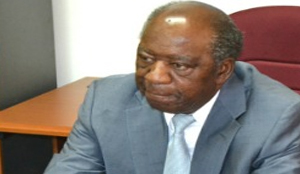By MAIMBOLWA MULIKELELA –
ZAMBIA’s Foreign Direct Investment (FDI) hit slightly below US$2 billion in 2013, up from the US$1.6 billion recorded the previous year, Finance Minister Alexander Chikwanda has said.
This is premised on the growing agriculture, mining, manufacturing, tourism, construction and energy sectors.
Giving an overall economic performance to the media in Lusaka, Mr Chikwanda said Zambia posted slightly below US$2 billion foreign direct investments inflows in 2013 compared to US$1.6 billion the previous year.
Mr Chikwanda said: “Foreign direct investment in 2013 was just slightly below US$2 billion. Import growth has also been strong at 16.5 per cent in 2013, driven by both strong FDI flows as well as incentives in the budget for job creating sectors which included customs duty reductions.”
He said the current account and trade balance had remained positive with strong FDI inflows in the period under review.
Commenting on the external sector development, Mr Chikwanda said the declines in the trade balance in the recent past reflected the need to promote greater Non Traditional Exports (NTEs) by diversifying the exports base.
He said agriculture, energy and manufacturing sectors were going to be important sources of diversification for the Zambian economy in the medium to long-term.
The minister said capital and intermediate goods continue to account for more than 50 per cent of all imports.
“In 2013 the current account balance recorded a surplus of US$216 million or 1 per cent of the Gross Domestic Product (GDP),” he said.
Mr Chikwanda said the trade balance comprising goods also posted a surplus of 1.4 billion or six per cent of GDP, saying that both the current account and trade balance had been positive between 2011 and 2013.
He said the exchange rate had remained market determined and depreciated by annual average rate of approximately 4.2 per cent in 2013.
“The Government is committed to maintaining a flexible and open exchange rate regime with stronger monitoring of external flows so that we can better manage the economy and respond to any global financial shocks,” Mr Chikwanda said.
He said the foreign reserves were currently at US$2.7 billion, adding the figure was subject to fluctuations.
On the monetary policy, Mr Chikwanda said the government remains committed to delivering low inflation and a strong financial sector that continues to expand access to finance particularly to Small and Medium Entrepreneurs (SME).
“Increasing attention is also being paid to improve consumer protection and strengthening corporate governance standards,” he said.
Mr Chikwanda said private sector credit grew by about 16.2 per cent on annual basis as at November 2013.
He said access to financial services, particularly for SMEs remained a challenge but significant progress was being made in proving the payment system as well as ways of spreading financial service provision through branchless banking.







